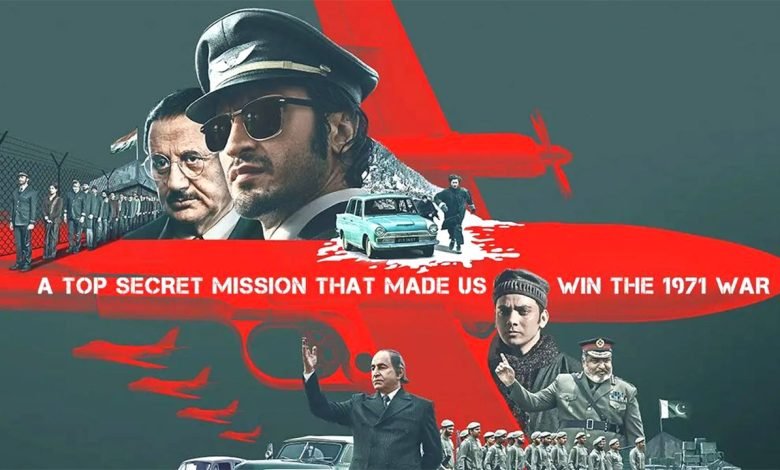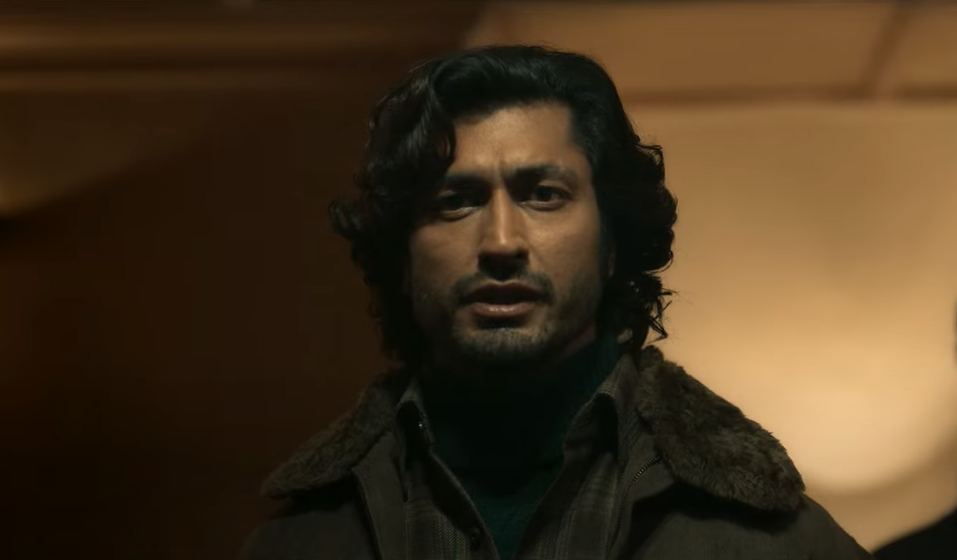IB71 review: Patchy writing makes this spy-thriller a dull and boring watch

Rating: 2 STARS
I believe we professional film critics are experiencing ‘The Kerala Story effect’. The ‘Kerala Story effect’ is when you have seen such a poor and overtly propagandist film that even a really boring and dull thriller film may appear to you as a good film.
So, as I tried to write this review without succumbing to the ‘Kerala Story effect,’ I found that IB71 is a tedious, overly simplistic thriller with only a few thrilling moments.
Set in 1971, the film’s plot centres around Indian intelligence officer Dev Jammwal (Vidyut Jammwal), who discovers that Pakistan is plotting an assault on India with the help of China. With only 10 days till the attack, Dev devises the strategy of limiting airspace between East and West Pakistan in order to weaken their plot. However, it is not as simple as it appears on paper since a slight error and he and the rest of the intelligence officers team will be killed, and India will face international disgrace.
The story of the film is based on a true incident, and it has a lot of potential to become an exciting thriller that will make you proud of your army and intelligence officers, but the writing is so bland that it fails to adapt this material into a suspense tale.
Thrillers based on true events have one big disadvantage: the viewer is already aware of the film’s end, therefore everything depends on how the story is delivered, which is where writer-director Sankalp Reddy falls short.
The plot of the film is divided into two halves. The first half is dedicated to planning, while the second half is dedicated to execution. The first half is so simplistic that the plot does not progress at all. For example, Dev Jammwal and his colleague (Suvrat Joshi) are attempting to keep an eye on a particular criminal, and the majority of the first half is dedicated to how they keep an eye on him. Jammwal and his colleague carry out their plan so effortlessly that those scenes fail to elicit the necessary tension since we never get the impression that Jammwal and his colleagues’ lives are in danger in the first half.
The actual thrill begins in the second half but even here the execution is overly simple hence we don’t feel the tension even when Indian Intelligence officers’ lives are in danger. One reason for this is that all of the Intelligence officers remain complete strangers to us until the very end. Hence we don’t experience any emotional connection with any of them.
They could have easily added 1-2 scenes to build some emotional connection with at least a couple of intelligent officers. Why not illustrate that some intelligence officer’s personal life is in peril and he still chooses to carry out this mission? For example, some intelligence officer’s pregnant wife is admitted to the hospital for delivery and is fighting for her life, or some officer’s daughter/son is in the hospital and he needs to be back within couple of days to provide emotional support to his wife. Yes, on paper these scenes might come across as cliche and outdated but if executed with conviction, these cliches may have not only aided to develop some emotional connection with these intelligence officials, but also added to the tension and made the whole atmosphere even more thrilling.
This is Sankalp Reddy’s second thriller based on Indo-Pak 1971 war after Ghazi Attack (2017), but he fails to recreate the same suspense and thrill in this film.
Another big issue I had with this film is how they present the antagonist. The film follows the tried and tested trope of dumbing down the Pakistani army and intelligence bureau. But in doing so we don’t realise that indirectly we are also showing our intelligence officials as dumb. Because you don’t need to be intelligent to outsmart dumb people. You can be called intelligent only when you can outsmart an intelligent person. Outsmarting a dumb person is not a sign of being intelligent. Hence had the writer-director depicted these Pakistani officers as equally intelligent, it would have helped to create more thrill and tension because when you notice that the antagonists are also equally intelligent, you as an audience automatically start worrying and wondering how our protagonists will outwit them.

In terms of acting, apart from Vidyut Jammwal, the film doesn’t give much chance to the rest of the cast. Even Vidyut’s role is constructed in such a way that he is not given many opportunities to demonstrate his acting abilities. Anupam Kher plays a chief of India’s Intelligence Bureau, but he has such short screen time that it comes across like he is playing a guest appearance in the film. Vshal Jethwa has performed admirably. His character is intentionally made to come across as a caricature and he does justice to that.
The film has done a decent job in other technical departments including cinematography and production design. The film is only two hours long which is quite short in terms of average Indian film’s length but despite such short length certain scenes especially in the first half feel like they have been unnecessarily dragged too long.
Overall, the team deserves good marks for mounting the project on such unheard story and living up to the hype with visuals, but the movie falters due to the writing, which is very mediocre.

